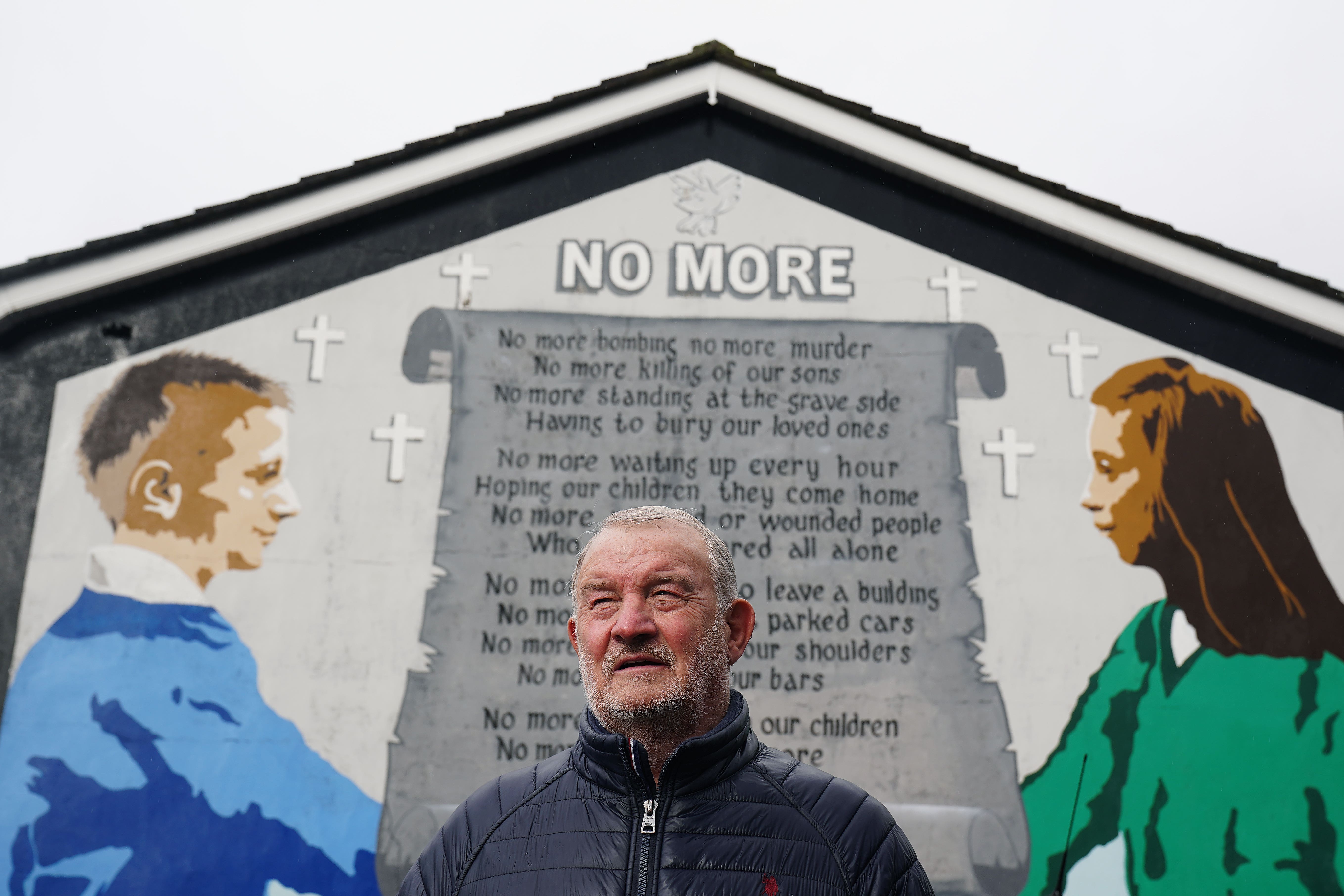Loyalist internee brands 1998 peace deal the ‘Green Friday Agreement’
Jim Wilson said the accord has been rendered ‘worthless’ due to the handling of the Brexit process and the creation of barriers between GB and NI.

Loyalist prisoners who believed the Good Friday Agreement secured Northern Ireland’s place in the UK now view the deal as a win for republicans, a former paramilitary internee has said.
Jim Wilson from east Belfast was a member of the Red Hand Commando during the Troubles and was involved in dialogue with loyalist inmates inside the Maze prison in the lead up to the signing of the peace accord in 1998.
Mr Wilson, who was interned without trial in the early 1970s at the age of just 19, said the handling of the Brexit process, with the creation of trading barriers between Great Britain and Northern Ireland, has undermined much of what the deal struck 25 years ago achieved.
The 70-year-old said while loyalists are angry at the current political situation and are determined to oppose the latest UK/EU plans to handle Irish Sea trade, he insists there is no appetite for a return to conflict.
“The only issue that the prisoners had was never a question of ‘when are we getting out?’, or ‘we need to get out’, it was ‘is the constitution of our country safe?’,” Mr Wilson told the PA news agency.
“And the word was sent back in by ourselves – ‘yes, it was safe’.
“The constitution was what our people had fought and died for, to remain British and have the right to remain British and equally to be treated as a British citizen in all walks of life.”
The community worker said prisoners were aware that the early releases granted by the Good Friday deal caused hurt among victims of paramilitary violence.
“Obviously it was upsetting the people because don’t forget there was loyalists killed, there was republicans killed by ourselves and each other and the sensitivity around that was all a question of how far do we go to get peace and stop the killings that’s gone on and try to make this country a better place,” he said.
“You know, I’ve been asked time and time again about this around the Good Friday Agreement, and there’s a lot of people alive today because we did agree and move forward.”
Mr Wilson said he now refers to the deal struck at Castle Buildings in Stormont on April 10, 1998 as the “Green Friday Agreement”.
“I don’t call it the Good Friday Agreement because it hasn’t been good for unionism, it hasn’t been good for loyalism, it’s been very, very good for nationalism,” he said.
“So why call it a Good Friday Agreement when it was painted green?”
He added: “Today it’s worthless. It was actually a worthless agreement.”
Mr Wilson said those advocating a change to powersharing rules at Stormont to bypass the DUP’s current blockade of devolution over the Brexit trade dispute were ripping up the concepts underpinning the Good Friday accord.
“The Good Friday Agreement was not about that, it was about sharing, it was about sharing power and sharing responsibility,” he said.
“Our fellas that went to jail and went to graveyards went there because of the constitution, because they did not want the constitution to be usurped by republicanism.
“And it’s now being done by the British government, the Americans will have their finger in the pie also, the Irish government and the European government.
“And it’s not acceptable to us – end of story.”
He said loyalist demands for the scrapping of the trade barriers created by Brexit’s contentious Northern Ireland Protocol were not unreasonable, as he said was their opposition to the new EU/UK Windsor Framework deal that still leaves the region following some European single market rules.
“I am entitled to feel the same as a guy who lives in Manchester, Birmingham, London or Glasgow,” he said.
“I don’t want the EU to have laws upon me that we have no say in, we have no way of making those laws change or to check to see if those laws are right for us.
“They have absolutely no entitlement over me. I’m a British citizen and that’s what my entitlement is, to be a British citizen and be part of the United Kingdom.”
There is a mural close to Mr Wilson’s house off the Lower Newtownards Road in east Belfast that depicts a young protestant boy shaking hands with a young catholic girl and between them is a poem titled ‘No More’.
It was written by the former loyalist internee and his grandson Dylan. Dylan is the boy in the mural and the girl is a niece of a prominent republican from the nearby Short Strand neighbourhood.
Pointing to the poem, Mr Wilson said: “We don’t want no more and you know because we are digging our heels in and fighting for what we believe is right doesn’t mean to say anybody wants to go back to violence or to go back to where we were.
“What we want is to be treated as equal citizens within the United Kingdom – no more, no less.”
Asked for his thoughts on the Good Friday deal 25 years on, he said he still believes loyalists did the right thing to back a settlement that ended the killings.
“The only thing that that makes me feel right about that (the deal) was because of the amount of killings and bombings and murders that was going on,” he said.
“We done the right thing, at the right time, for the right reason.
“But we have had a wrong outcome.”